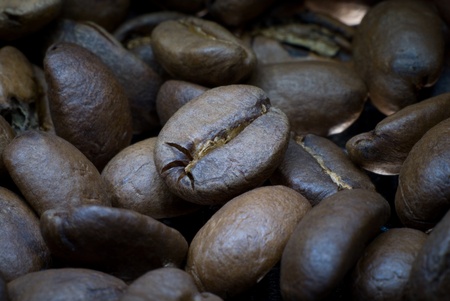1. Introduction: The Promise of Coffee Grounds in Britains Energy Mix
If you’re anything like me, mornings in the UK often start with the comforting aroma of freshly brewed coffee filling the kitchen, a ritual enjoyed by millions across the nation. Over the years, our love affair with coffee has blossomed—from bustling high street cafes to cosy home brews, coffee culture is truly woven into British daily life. But have you ever wondered what happens to all those used coffee grounds once your cup is empty? Traditionally destined for the bin, these little leftovers are now stirring up quite a buzz for an entirely new reason: their potential as a sustainable source of biofuel. With the UK’s growing focus on green energy and reducing landfill waste, innovators and researchers are looking at spent coffee grounds as an untapped resource that could play a meaningful role in Britain’s future energy mix. In this article, let’s explore how yesterday’s coffee could be tomorrow’s clean energy solution—a concept that’s not only good for the environment but might just keep our homes warm and our planet happy.
2. The Science Behind Coffee Grounds Biofuel
Turning used coffee grounds into biofuel might sound like a bit of kitchen magic, but the science behind it is both fascinating and surprisingly straightforward. In many British homes, we enjoy our daily brew, often tossing away heaps of spent coffee grounds without a second thought. However, these leftovers are packed with energy-rich oils and organic matter that can be transformed into a sustainable source of fuel.
The process begins by collecting used coffee grounds from cafes, households, or even large offices. These grounds are then dried to remove excess moisture—an essential step in preparing them for conversion. Once dried, the coffee grounds undergo a process called transesterification, where the oils within are extracted and chemically converted into biodiesel. What’s left behind isn’t wasted either; the remaining solid material can be compressed into biomass pellets or briquettes, which burn cleanly and efficiently for heating purposes.
But what makes coffee grounds such an attractive alternative to conventional fossil fuels in the UK? Let’s have a look at their key features compared to traditional sources:
| Fuel Type | Renewable? | CO2 Emissions | Source Availability (UK) | Additional Benefits |
|---|---|---|---|---|
| Coffee Grounds Biofuel | Yes | Lower than fossil fuels | High (thanks to national love for coffee) | Reduces landfill waste, supports circular economy |
| Petroleum Diesel | No | High | Imported, non-renewable | – |
| Biodiesel (from crops) | Yes | Moderate to low | Variable (dependent on crop yield) | Takes up agricultural land |
This simple yet effective method of repurposing something as ordinary as coffee waste highlights just how innovative and resourceful we can be here in the UK. Not only does it make the most of our love for a good cuppa, but it also helps us tread a little lighter on the planet—a win-win for British families and future generations alike.

3. Current Initiatives and Local Success Stories
Across the UK, the movement towards using coffee grounds as biofuel is gaining exciting momentum, thanks to the creativity and dedication of local communities, businesses, and innovators. One of the most heartwarming examples comes from forward-thinking coffee shops in cities like London, Manchester, and Edinburgh. These cafés are not only serving delicious brews but also collecting their spent coffee grounds and partnering with biofuel companies to give them a second life.
Local councils have also joined this green revolution. For instance, some boroughs in London have piloted programmes where council-run buildings collect coffee waste from nearby businesses. This collected waste is then processed into advanced biofuels, which power council vehicles or heat public facilities—an inspiring demonstration of circular economy principles at work.
Meanwhile, green start-ups are making waves with their innovative approaches. Companies like Bio-bean in Cambridgeshire have built entire operations around recycling used coffee grounds into sustainable products such as biomass pellets and advanced biofuels. These fuels are then supplied to transport networks and heating systems throughout the UK, reducing reliance on fossil fuels and contributing to a cleaner environment.
It’s truly uplifting to see how these real-life stories—whether it’s your local café or an ambitious start-up—are coming together to make our towns and cities more sustainable. The UK’s collaborative spirit shines through as communities unite to turn yesterday’s coffee into tomorrow’s clean energy.
4. Environmental and Economic Benefits
As a mum who cares deeply about the future our children will inherit, I am always on the lookout for sustainable choices we can make right here in the UK. Turning coffee grounds into biofuel is a brilliant example of how we can reduce waste, cut carbon emissions, and build a stronger local economy—all while enjoying our daily cuppa.
Reducing Waste in British Households and Cafés
Every year, millions of cups of coffee are brewed across Britain, leaving behind mountains of spent coffee grounds. Traditionally, these end up in landfill, releasing methane as they decompose. By converting them into biofuel, we can significantly reduce this waste stream. Local initiatives encourage both households and independent cafés to collect used grounds for processing instead of simply tossing them away.
Cutting Carbon Emissions
The environmental impact goes beyond just waste reduction. Using coffee grounds as a renewable energy source helps decrease reliance on fossil fuels, thus lowering greenhouse gas emissions. When compared to traditional fuels, biofuel from coffee grounds offers a cleaner burn and a smaller carbon footprint.
Comparing Emissions: Coffee Grounds Biofuel vs Traditional Fuels
| Fuel Type | Carbon Emissions (kg CO2/MWh) |
|---|---|
| Coffee Grounds Biofuel | ~50 |
| Coal | ~300 |
| Natural Gas | ~200 |
Strengthening the Local Circular Economy
One of my favourite aspects of this approach is its support for our local communities. By collecting coffee grounds locally and processing them into fuel close to home, we keep resources circulating within our towns and cities. This not only creates green jobs but also fosters a sense of shared responsibility among businesses, families, and local councils.
Key Benefits at a Glance
- Reduces landfill waste
- Lowers carbon emissions
- Creates green jobs locally
- Keeps resources within the community
The journey may be just beginning, but with every cup of coffee enjoyed across the UK, there’s real potential to make positive change—one used ground at a time.
5. Challenges and Considerations
As much as I would love to see every drop of our morning brew’s leftovers powering the nation, turning coffee grounds into a mainstream biofuel in the UK comes with its own set of unique challenges. First and foremost, there’s the matter of collection logistics. Unlike traditional waste streams, used coffee grounds are scattered across thousands of homes, high street cafés, independent bakeries, and bustling office kitchens. Gathering these small amounts efficiently requires a well-organised system—one that’s both convenient for households and businesses, and cost-effective for collectors.
Secondly, the necessary infrastructure is still in its infancy. While there are pioneering companies and community initiatives making headway, scaling up means investing in specialised processing plants and reliable transport networks tailored for this new type of waste. It’s not just about picking up the grounds; they need to be stored properly to prevent mould and spoilage before they can be transformed into usable energy.
Another challenge is ensuring there are enough used coffee grounds available to make a significant impact on our national energy supply. While Britain certainly loves its cuppa—whether it’s a flat white from your favourite corner café or a home-brewed instant—the total volume of used grounds must be substantial to compete with other established biofuels or even make a dent in fossil fuel usage. Some regions might have plenty, especially in cities like London or Manchester with their thriving café cultures, but rural areas may not generate enough waste to justify separate collection.
It’s also important to consider contamination. Coffee grounds often end up mixed with food scraps or packaging, which can complicate processing and lower the quality of the final biofuel product. Public awareness campaigns and clear guidance would be essential so families like mine know exactly how to sort their coffee waste correctly.
All things considered, while there’s great potential for coffee grounds to play a role in the UK’s green energy future, it will take clever planning, investment, and a bit of good old British community spirit to overcome these hurdles.
6. The Future Outlook: Scaling Up in the UK
As we look ahead, the potential for coffee grounds as biofuel in the UK is not only promising but also heart-warming for those of us who care deeply about our children’s future. Imagine a Britain where morning brews help power our homes, schools, and local businesses—a truly British way to make the most of our daily habits! To really scale up this trend, government support will be key. Policies that encourage recycling, investment in green technology, and incentives for cafes and families to participate can make all the difference. Community groups have an equally important role: local initiatives, such as coffee ground collection points at village halls or high street cafes, can bring neighbours together while reducing waste.
What Can British Families and Businesses Do?
Every household and business can play their part. For mums like me, it’s as simple as saving your used coffee grounds rather than tossing them away—why not start a compost bin or join a local collection scheme? Businesses, from bustling city cafés to cosy tea rooms in the countryside, can partner with biofuel producers or even set up their own recycling programmes. It’s all about small actions adding up to big change.
The Role of Education and Awareness
Schools and community centres are wonderful places to spread awareness about the benefits of coffee ground recycling. Workshops for children and families can turn learning into fun, nurturing eco-friendly habits from a young age.
A Warm Path Forward
With continued progress, government backing, and grassroots enthusiasm, coffee grounds could soon become a staple source of clean energy across the UK. Let’s embrace this delightful blend of sustainability and tradition—because when British families come together, there’s nothing we can’t achieve for a greener tomorrow.

